Welcome to the Cumbasil-Mite Blog
Here you'll find exciting articles, helpful tips, and up-to-date information on poultry care, coop hygiene, and the optimal use of Cumbasil-Mite. Whether you're a hobbyist or a professional, we'll support you in keeping your animals healthy and your coop free of parasites. Enjoy reading and exploring!
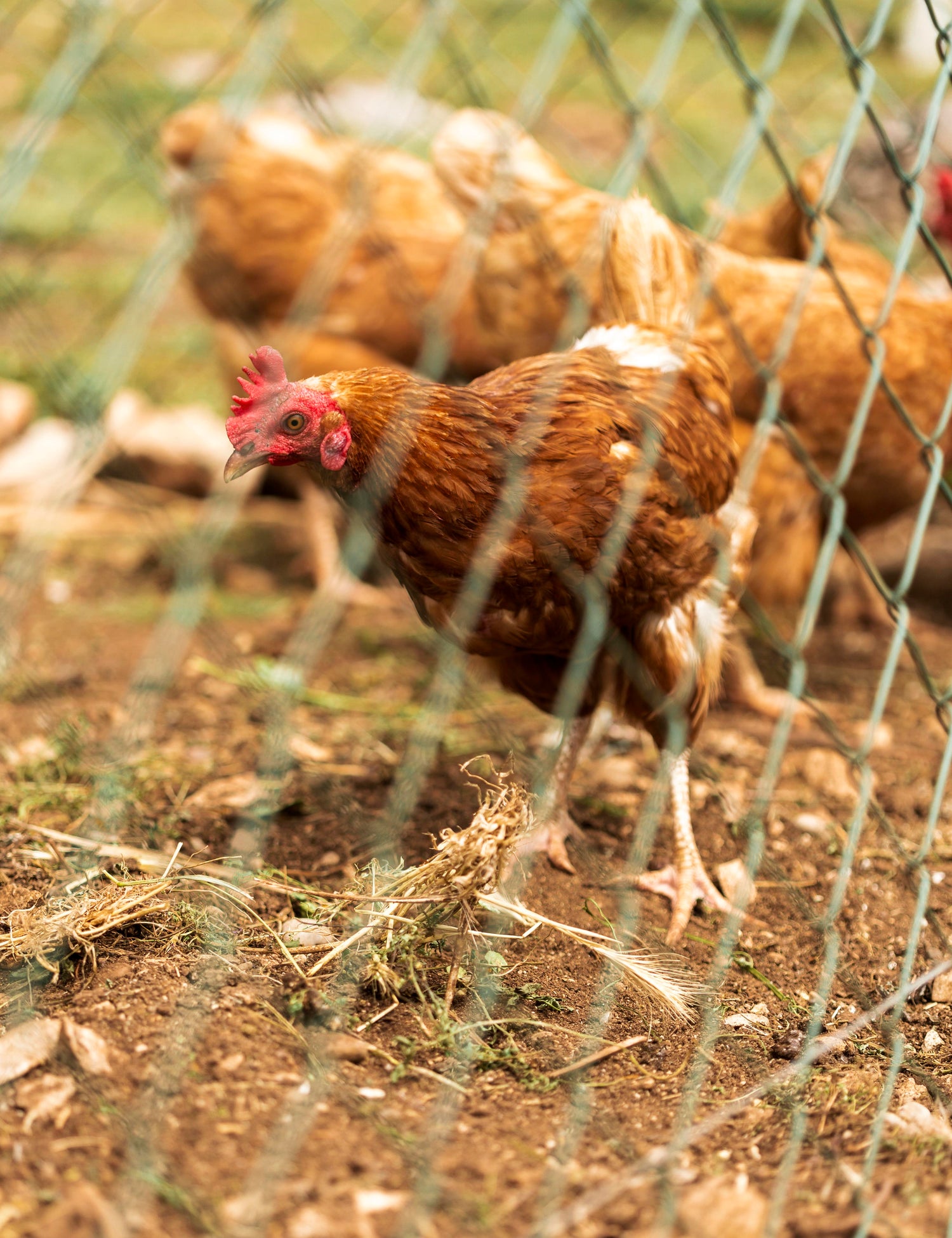
Compulsory housing in case of bird flu: What hobby chicken keepers need to know
Avian influenza continues to cause problems for amateur chicken keepers, especially the associated coop restrictions. Learn what you need to know about avian influenza, how the infectious disease manifests itself, and what regulations apply to coop restrictions in our blog post.

Infestation in the chicken coop: How to get rid of the red mite
Especially in summer, chickens repeatedly suffer from red mites. But how do you get rid of these annoying parasites? In our blog post, you'll learn how to treat our feathered friends naturally.
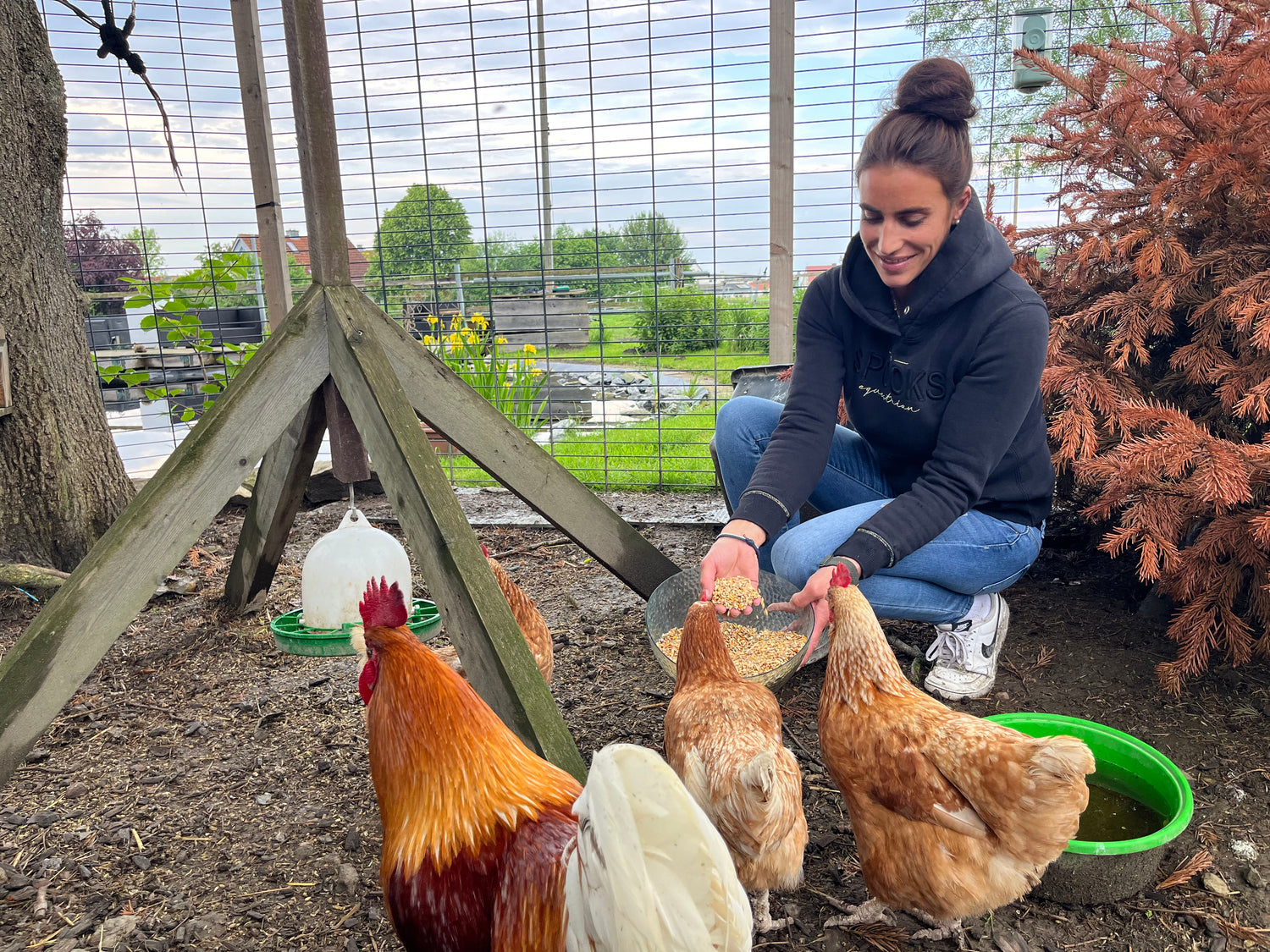
Fermenting feed: How to support your chickens' nutrient supply
A balanced diet and a functioning gut are essential for your chickens' health. But how does the digestive system actually work in our feathered friends? Learn more about the role fermented feed plays in this in this blog post.

Why do chickens have different colors?
A colorful egg basket isn't just for Easter. In nature, chicken eggs come in a wide range of colors and shades. Depending on the breed of poultry, different colored eggs are laid in the nest. These can be greenish, speckled, or even chocolate brown. But why is that?

A different kind of chicken coop - a chicken coop that takes up little space and can be moved
If you're one of those people who would like to keep their own chickens but have limited space, you're not alone. Not everyone wants to opt for a permanent chicken coop in the backyard either. More and more people are choosing to keep chickens to produce their own fresh eggs or meat. The question of how to keep chickens humanely in a small space is therefore a very legitimate and important one. Fortunately, there are many options and solutions available today for keeping chickens humanely and healthily, even in small spaces.
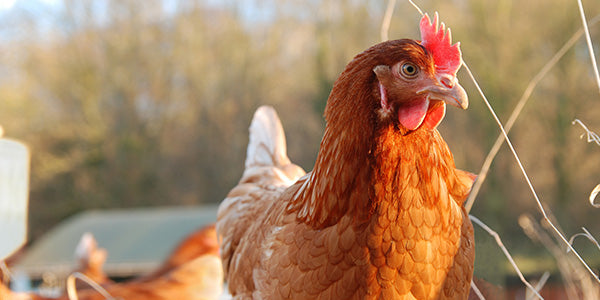
Fit for spring: Support your chickens' nutrient intake
Gentle rays of sunshine on the skin, the first crocuses in the flowerbed, a cheerful mood in the air – the world is in the grip of spring fever. It's no different in the chicken coop. Anticipation of the warmer days is growing, and with it, the energy for egg production. The laying season has begun.
And best of all, you too can contribute to a successful laying season. Get your chickens ready for spring and enjoy a generous haul.
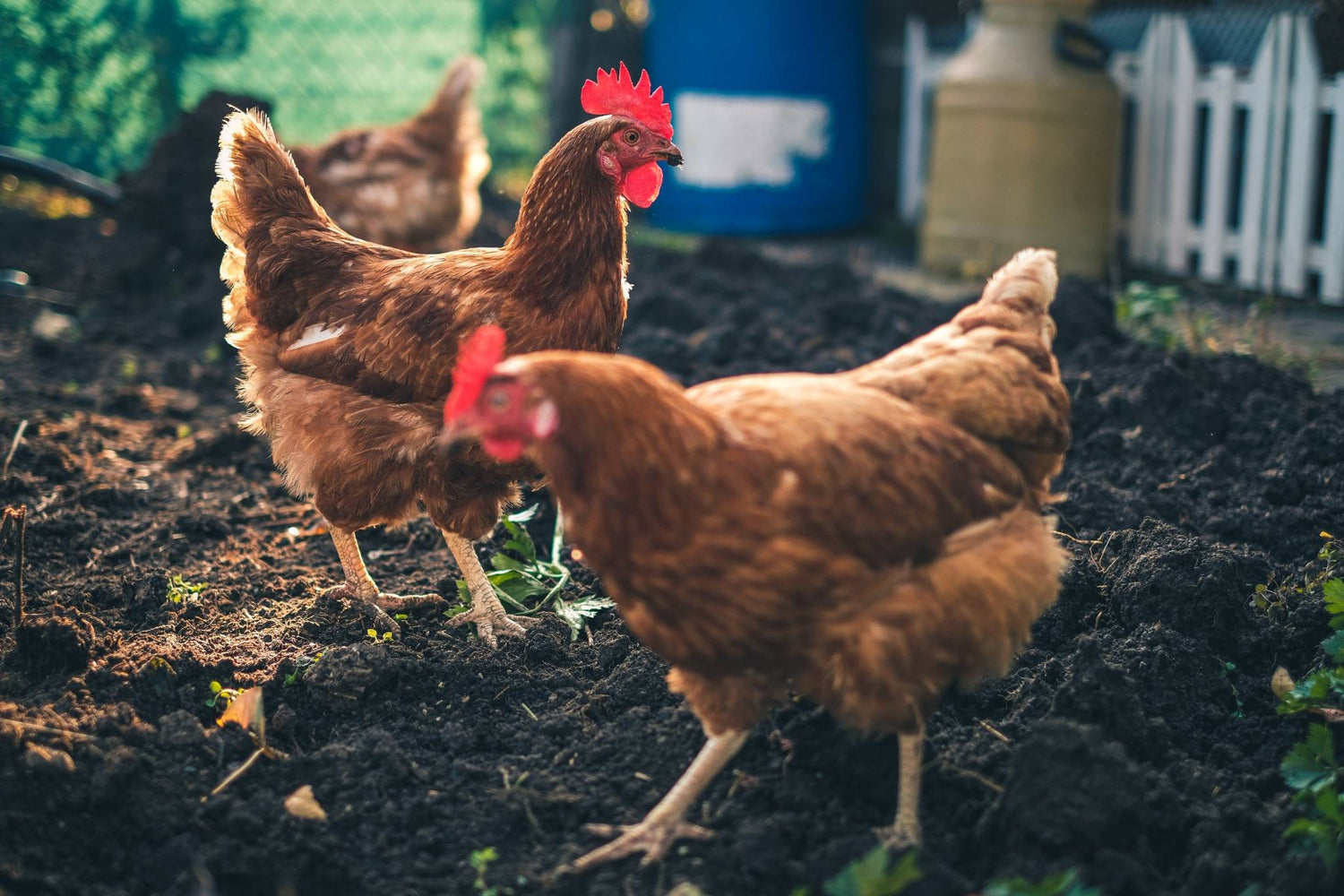
What is the difference between Cumbasil Mite and diatomaceous earth?
If you keep chickens, you naturally want them to be in top shape. There are a few things you can do to improve your hens' well-being and ensure they live a long and happy life. Learn the difference between diatomaceous earth and Cumbasil Mite.
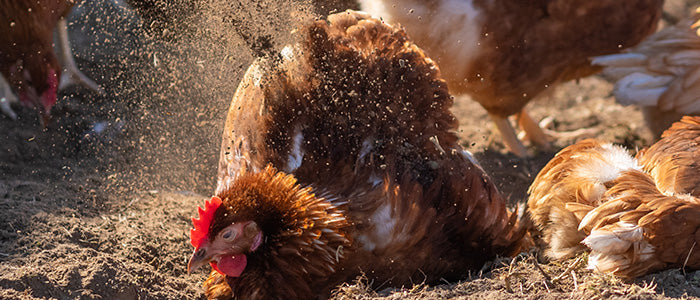
The perfect sand bath for your chickens - why a dust bath and how to do it properly?
With a sand bath, you offer your chickens the ideal all-round wellness package. You enable them to engage in their natural behavior – brooding – by cleaning their feathers. This ensures their well-being and prevents infestation by red mites and other parasites such as ticks, fleas, and lice, among others.
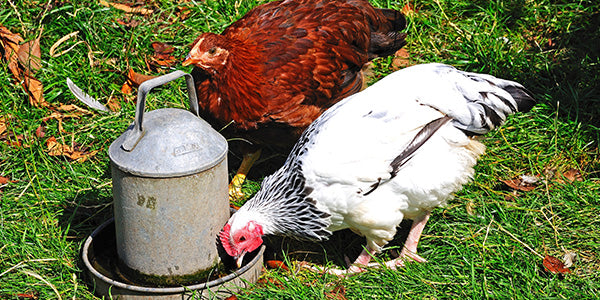
Water in the chicken coop - How to provide your chickens with water
To provide your chickens with the best possible care, you should consider issues like choosing the right breed, feeding, and the appropriate size of their coop and outdoor range, as well as their water supply. Access to fresh drinking water must be guaranteed at all times. In addition to the size, the water quantity requirements and the type of chicken drinker you plan to offer your birds also play a role. We'll tell you what to look out for and show you how you can prevent red mites and other chicken parasites with Blood Shield.
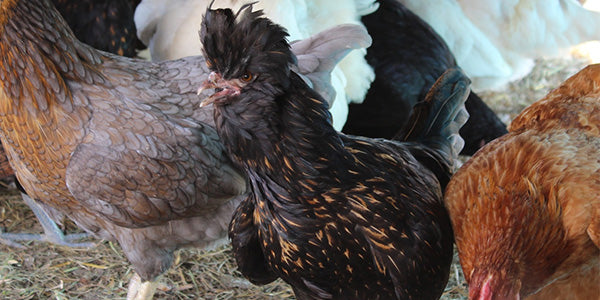
Keeping chickens: How easy it is to care for bearded and crested hens and feather-footed chickens
While standard chicken breeds can already suffer from ectoparasites such as northern fowl mites, feather lice, and lime leg, there are some breeds of chicken that are even more susceptible. These include bearded hens, crested hens, and feather-footed chickens. Learn what to look out for.
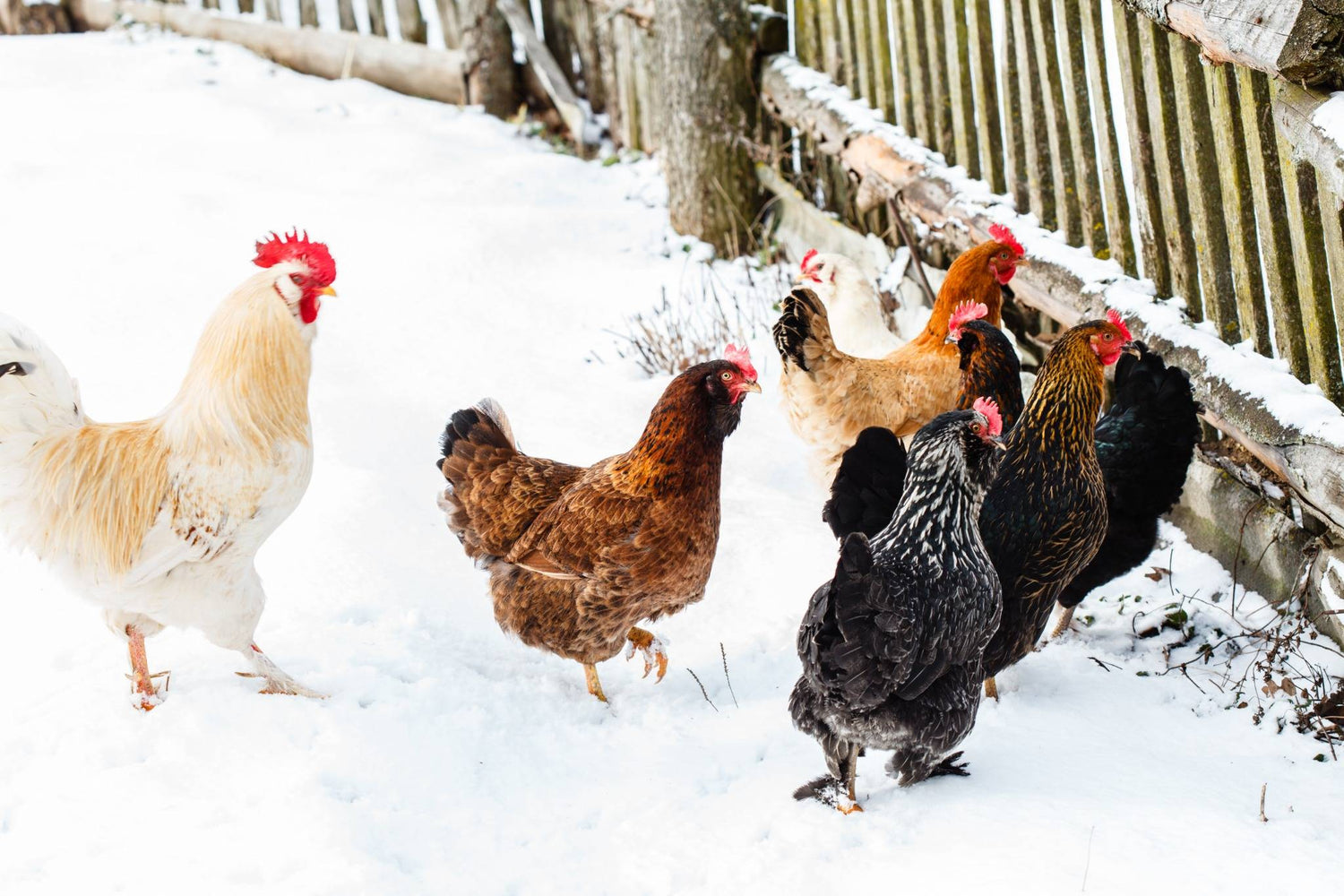
Keeping chickens in winter – what you should pay attention to!
Winter is coming, temperatures are dropping, and the days are getting darker. Just like with us humans, this can also affect your chickens' mood. They love the long summer days, the mild temperatures, and the hours of pecking in the run. Learn how to counteract this boredom and what you should look out for.
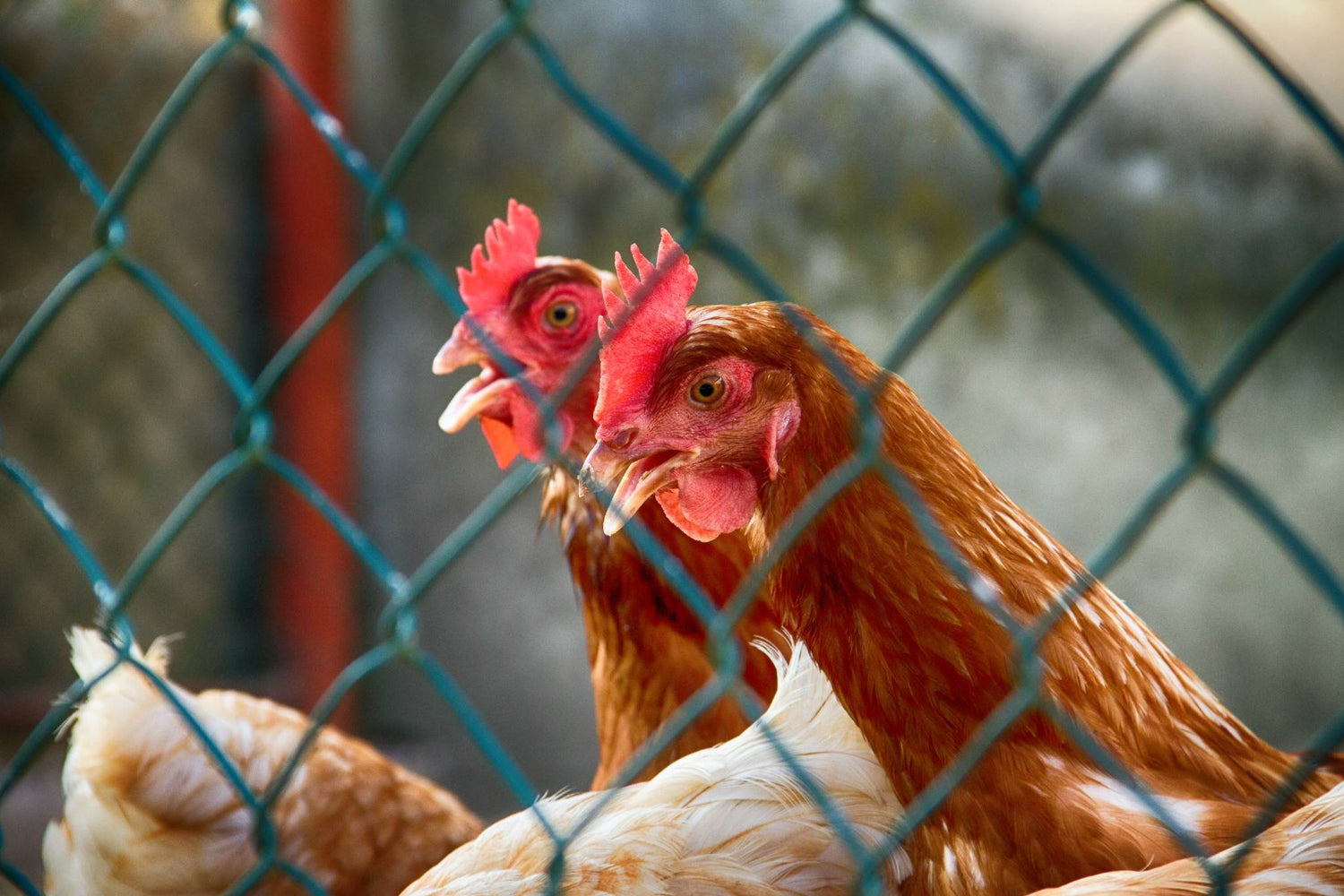
Compulsory housing for chickens - the best tips for healthy chickens
Happy chickens need activity, outdoor space, and natural light, especially in the summer. But what do you do when confinement becomes an issue? Avian flu and other similar conditions are reasons why the birds have to be kept indoors. Learn how your chickens can survive this time successfully and worry-free.
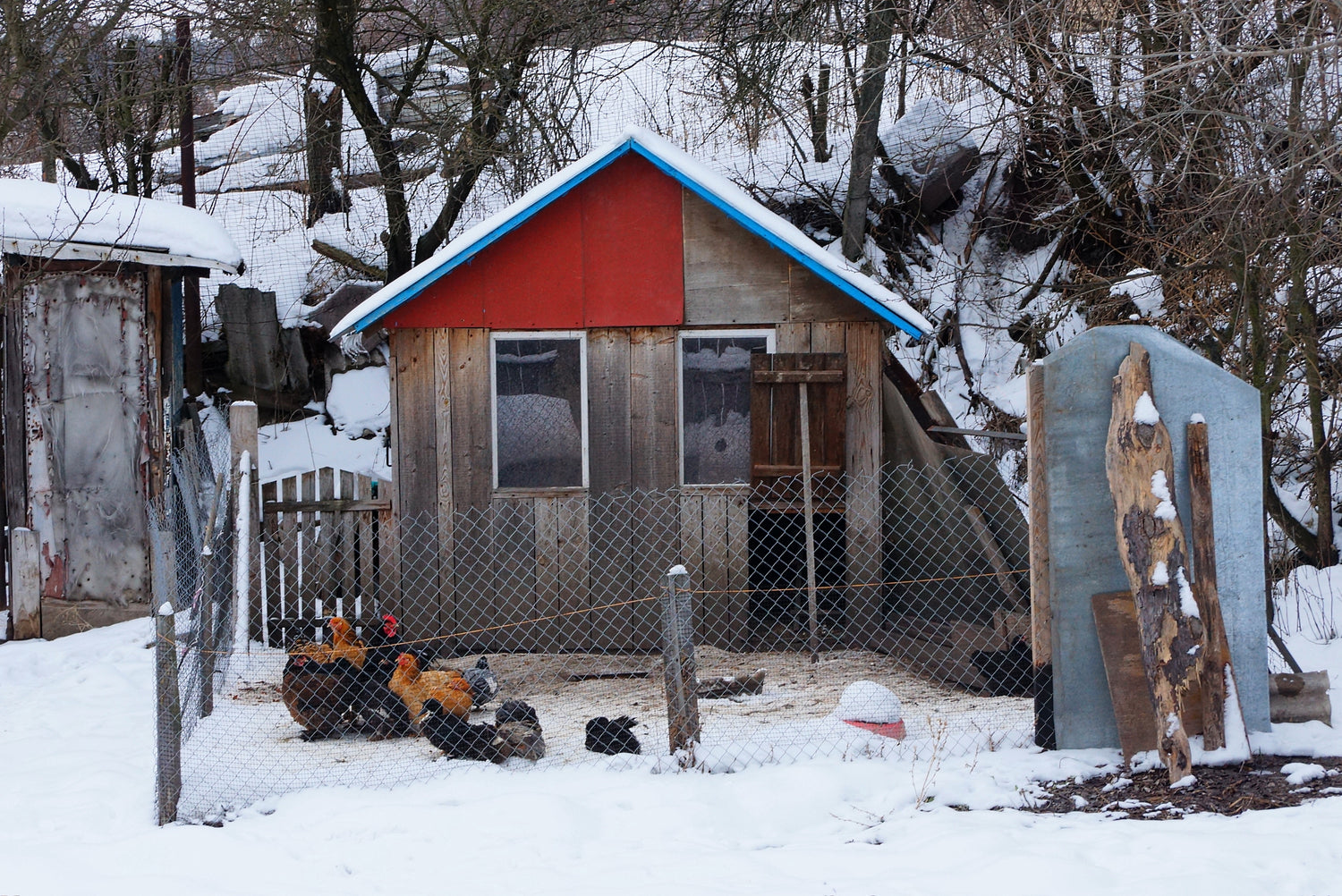
How to winterize your chicken coop? It's that easy!
When temperatures drop and the first frost sets in, many chicken owners worry about the well-being of their feathered friends. The chickens have happily scratched around in their run all summer and enjoyed every ray of sunshine, but how do they best survive the sub-zero temperatures and snow in winter?
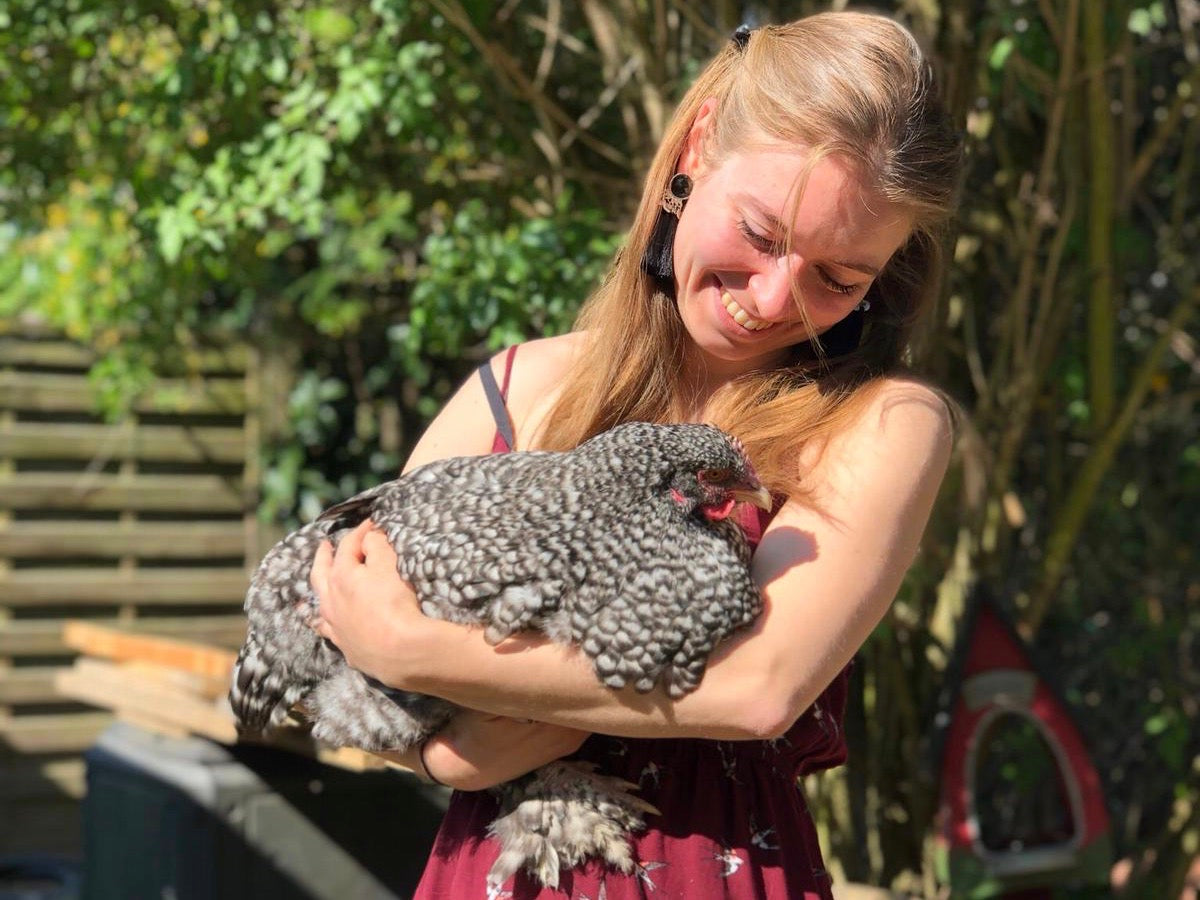
Mite infestation in chickens - This is how you can recognize a mite infestation
If the mite infestation in the chicken coop increases, the chickens will notice it quickly. Even though chickens are good at hiding pain and suffering, their behavior reveals a lot about their well-being. A vigilant chicken owner can quickly detect changes by observing behavior, even before the chicken shows any outward symptoms. Learn in today's guest post from Dein Gartenhuhn (Olivia Müsseler) on Instagram which chicken behaviors can help you recognize a mite infestation.
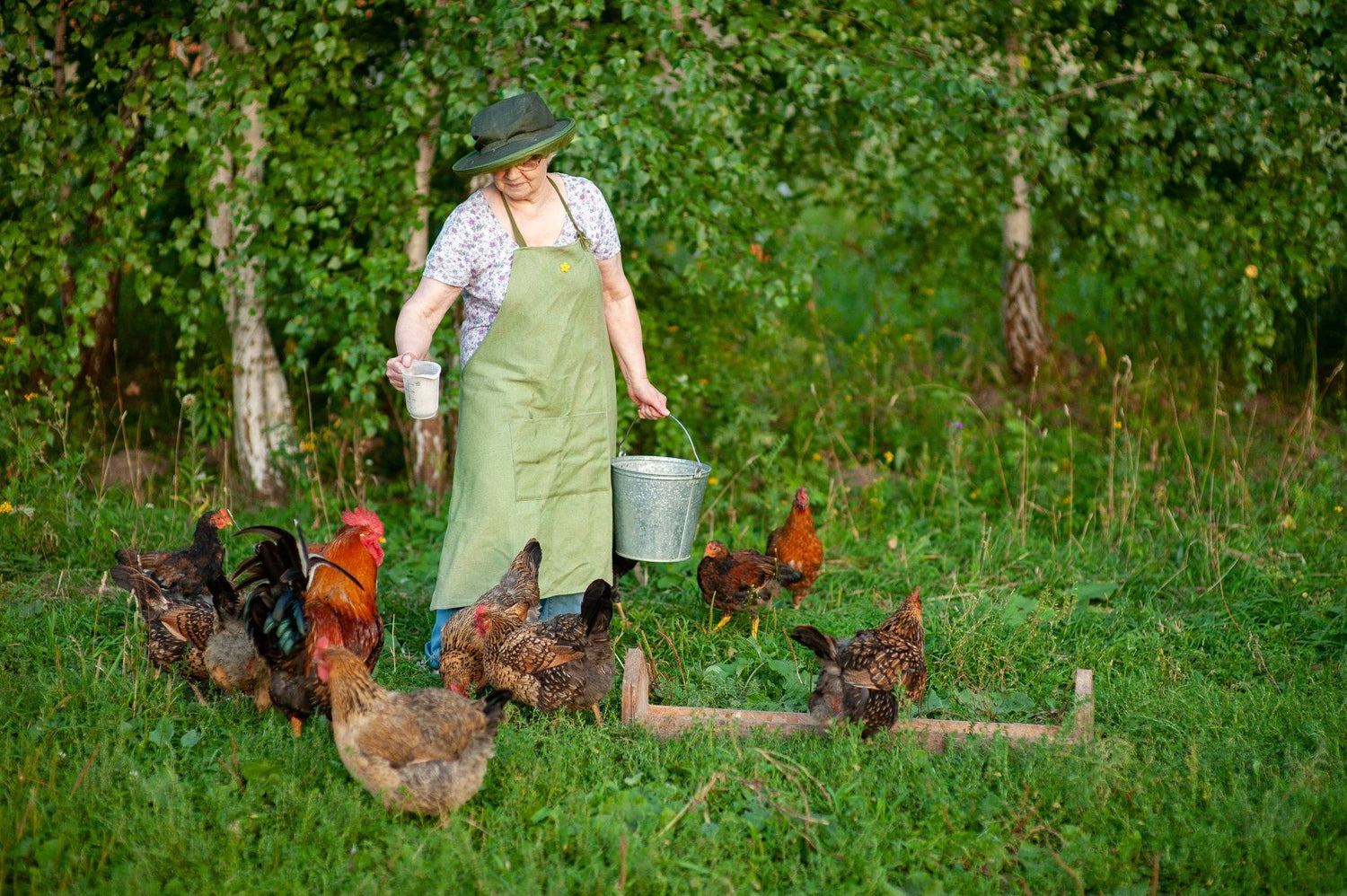
Chicken breeds for beginners
If you're a beginner and want to buy chickens for the first time, you should first get a good overview of the different breeds. If you carefully consider what you expect, you'll have a lot of fun keeping chickens later on.
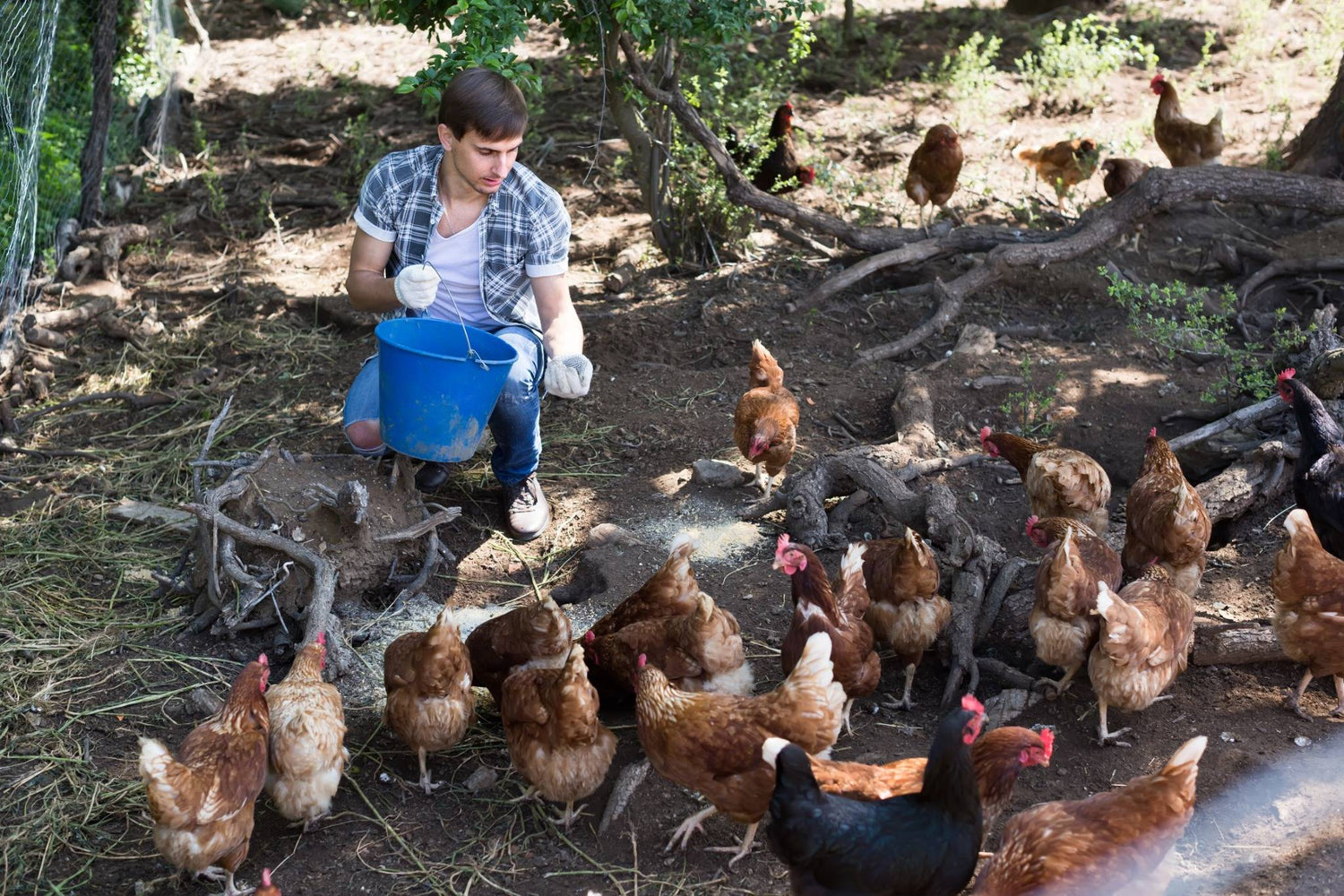
Chicken farming - identifying and combating the red mite
The red poultry mite is an external parasite that infests chickens, waterfowl, and pigeons worldwide. Wild birds are particularly often victims of this ectoparasite. It also affects chickens. The consequences can be serious. Read our article on how to identify and combat the red poultry mite.
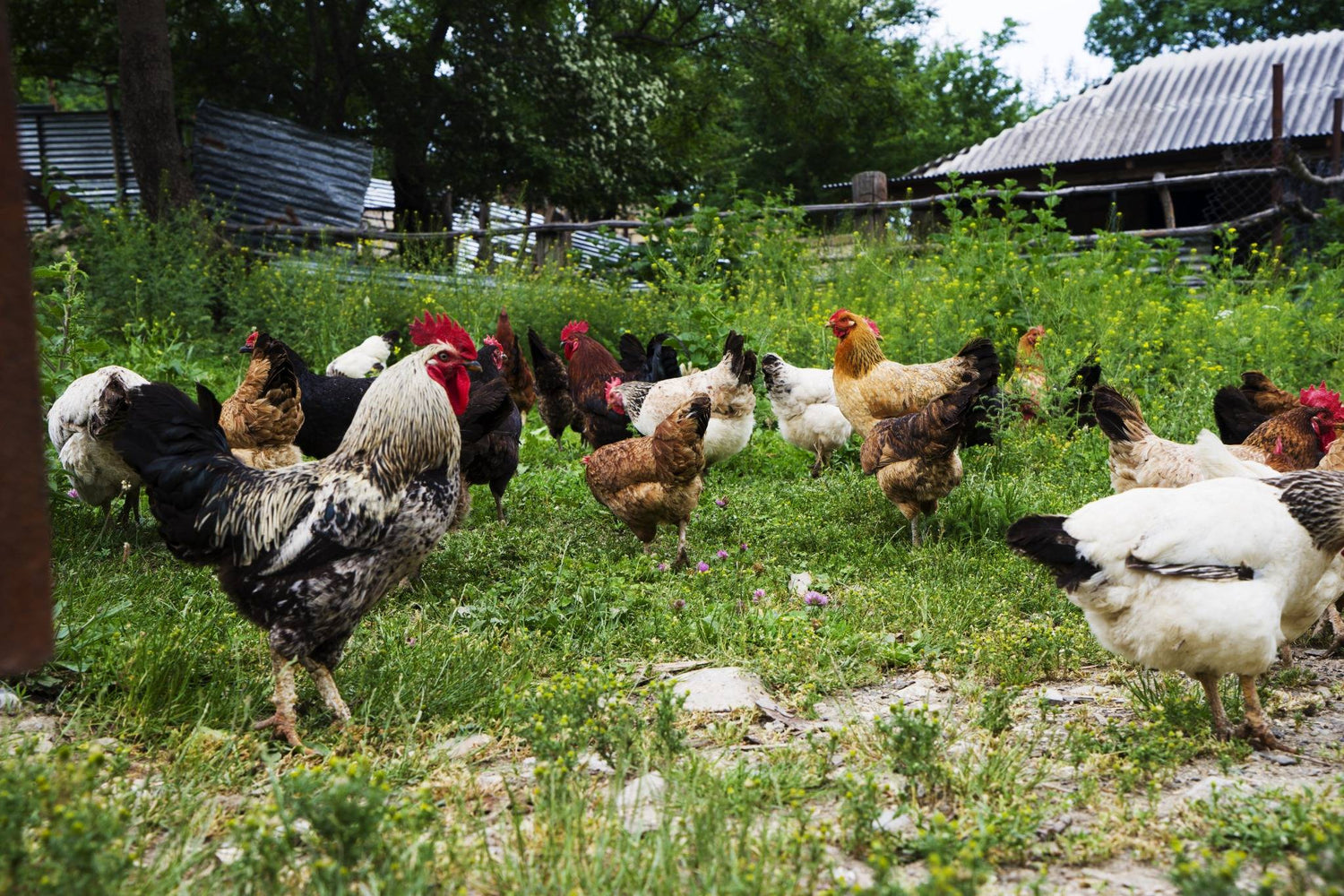
Chicken breeds and their characteristics
Whether you are a beginner or an experienced chicken keeper, anyone who wants to buy new chickens has a huge number of breeds to choose from.
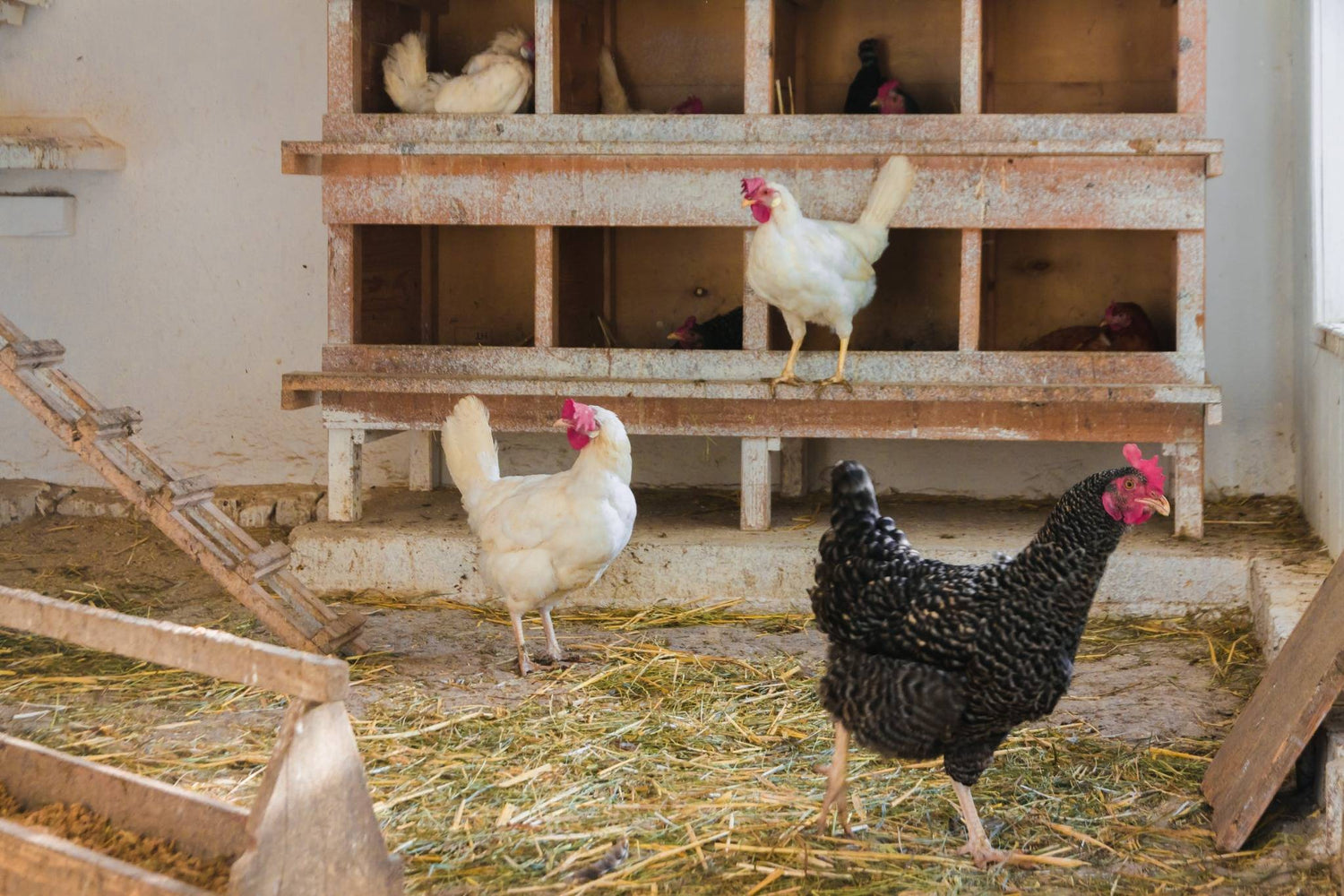
Keep your chicken coop mite-free - Prevent them with these simple tips
How can you prevent mites from infesting your chickens? Learn what milder temperatures mean for mite infestation in the chicken coop and how you can fight the parasites from the start.
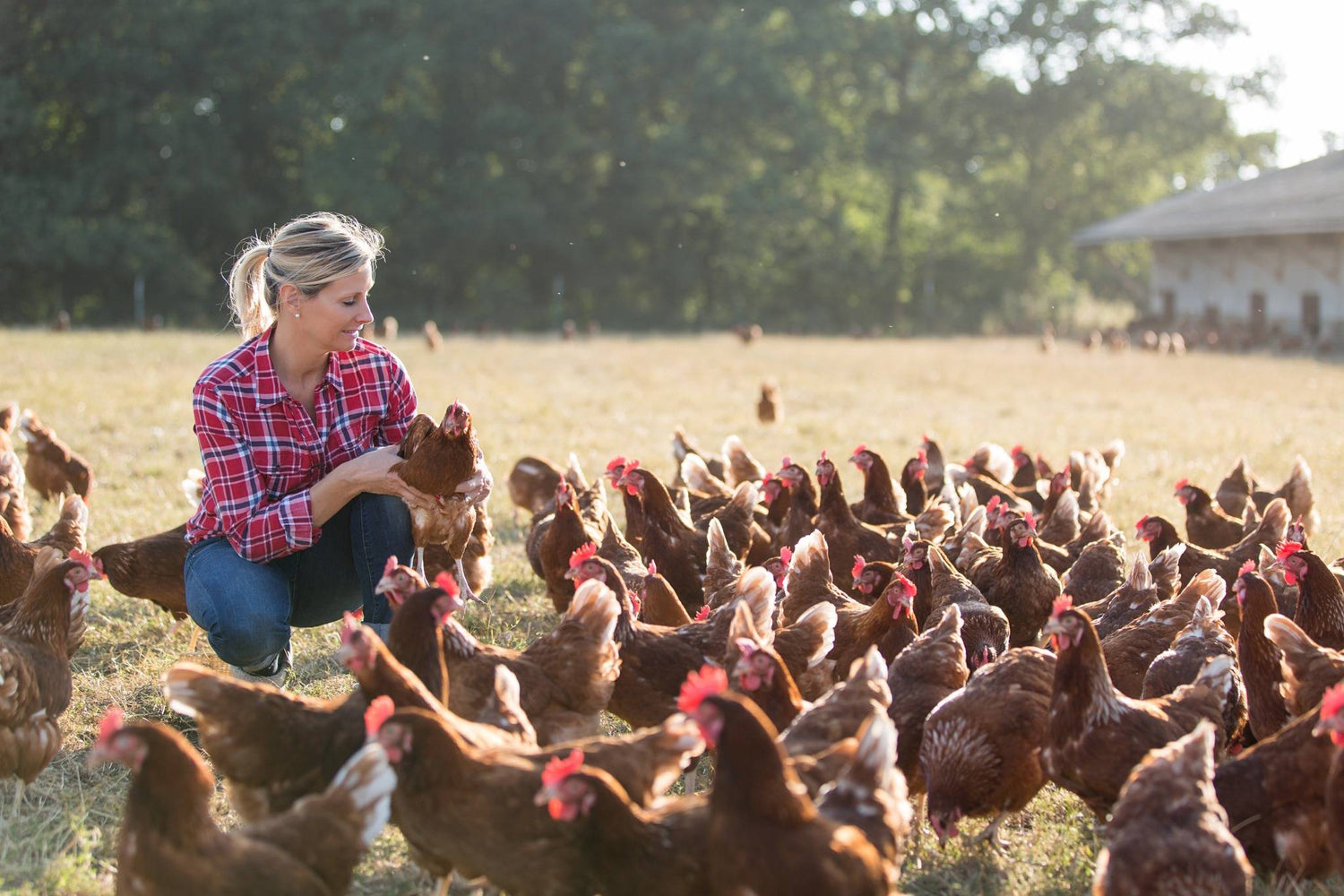
Chickens in spring - identifying and preventing mites
After your chickens have spent the winter in their coop, the start of the warmer months brings much joy for your animals. Learn how to get your chicken coop in shape.

